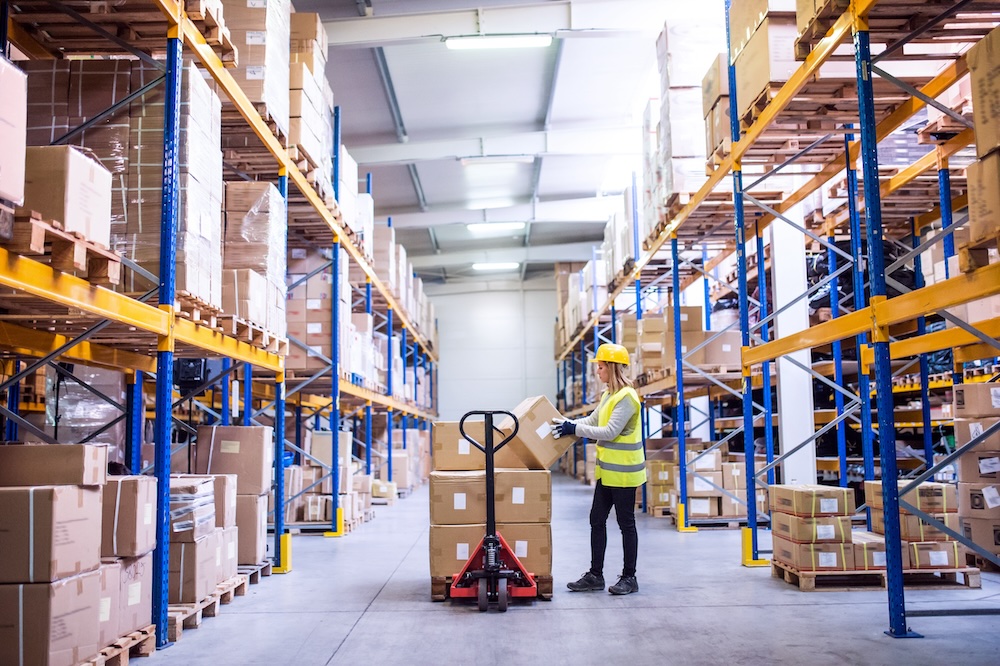 Clare Bottle CEO, UK Warehousing Association
Clare Bottle CEO, UK Warehousing Association

The concept of a circular economy is nothing new. It was first advanced some 50 years ago by Geneva-based engineer Walter Stahal, who argued that extending the product life of goods was a sensible point to start a gradual transition towards a more sustainable economy. However, it has only been in recent years that the circular economy has come to the fore, as climate change has forced companies and countries to focus increasingly on reducing their carbon footprint. In the UK it is seen as key to achieving the government’s target under the Environment Act to halve residual waste per person by 2042, and under the Climate Change Act to meet net zero by 2050.
In a traditional economy, products are made, used and disposed of (known as the make, use, dispose model), whilst in a circular economy, products are kept in use for as long as possible to extract maximum value, and at end-of-life materials are recovered and regenerated. The basic principles of a circular economy are to eliminate waste and pollution, keep products and materials in use as long as possible, and return materials into the environment with a positive impact.
Applying the circular economy could unlock trillions of dollars in the global economy, and lead to millions of tons of avoided emissions, and warehouses, as hubs for returns management, recycling, upcycling, can make a vital contribution, helping customers reduce waste, extend product life and meet their sustainability goals.
This huge opportunity for warehouses to provide such value-added services is a theme UKWA has advanced this year, firstly at IWLEX and subsequently at Multimodal, hosting various seminars on the ongoing imperative for warehouses to embrace innovation to help drive the circular economy in warehousing.
At IWLEX, Tony Mannix of GXO (formerly Clipper) spoke on ‘The Retail Loop - Returns, Recycling and Repairs’, describing how the world of retail logistics has changed dramatically over the past 25 years. Now we live in an 'omnichannel world' where next-day delivery has become the norm and the efficient management of returns allows 3PLs to offer competitive advantage as a 'retail enabler'.
Tony explained how GXO had supported a leading children’s clothing brand in its mission to extend the lifestyle of its clothing through resale of pre-loved garments. The goal was to create a single, go-to destination for both buyers and sellers, delivering a great customer experience, while generating healthy profits.
GXO is already ahead of the curve in providing a shared warehousing service that includes trade-in receipt and certification, photography, ozone cleaning and repair, pick pack and dispatch, resale fulfilment and returns management, but working with Sweden’s ‘greenest retailer’ to launch PO.P Second Hand, a scalable and profitable resale business, GXO has extended its contribution to the circular economy. According to Tony, the project has pioneered a greener retail future by reducing the environmental impact of the customer’s textile production.
The results are impressive. The partnership between GXO and PO.P Second Hand has seen 95% of returned clothing restored for retail and has attracted significant numbers of new customers – 35 per cent are new shoppers. GXO has captured value for PO.P that would otherwise have been lost through other online marketplaces and has helped cement customer loyalty with a truly circular solution.
Meantime, GXO’s warehouse operations have been expanded and optimised, including a refined inventory storage system and an additional on-site photo studio to support demand that turned out to be ten times greater than initially anticipated. The icing on the cake – PO.P Second Hand was awarded the fashion industry’s prestigious Drapers Award for Best Circularity Initiative for 2023.
Also speaking at IWLEX, Marie Hamblin (formerly of Deloitte) chaired a high-powered panel discussion on ‘Circular Economy for Obsolete Stock’, which considered the transformative potential of circular economy principles, with innovative strategies for managing overstocks, end-of-range products, damaged or slightly soiled inventory, and short-dated perishables. The panel also explored tax-efficient alternatives that deliver social value from surplus, rather than resorting costly destruction or indefinite storage.
At Multimodal we return to the topic, with James Farmer, founder of The Appliance Recycling Group, giving a keynote presentation on ‘Recycling Appliances in the Circular Economy’ as part of the UKWA conference stream. For the past 10 years, James has been building a market-leading collections and re-use organisation. While many companies are talking about the circular economy, The Appliance Recycling Group is already doing it. You can join us at the NEC to hear how the company overcame numerous challenges, to finally offer every UK electrical retailer a carbon-neutral exit route for takeback and warranty-returned electrical goods.
Manufacturers and retailers should all be considering how they can incorporate circular economy principles into their warehousing strategy – according to the World Economic Forum, the logistics and transport sector contributes just over a third of global carbon dioxide (CO2) emissions, making it the largest-emitting sector in numerous developed countries. And that share keeps growing.
As part of a sector that makes such a significant contribution to global emissions, we must play a critical role in the transition to a decarbonised future, as well as adapting to the impacts of climate change. The circular economy makes sense on all levels, as GXO and others can testify. It can help customers to operate more sustainably and meet consumer expectations for ‘greener’ goods, while increasing efficiency and profitability. And, of course, we all need to work harder to protect the planet.
For more information, please visit: www.ukwa.org.uk